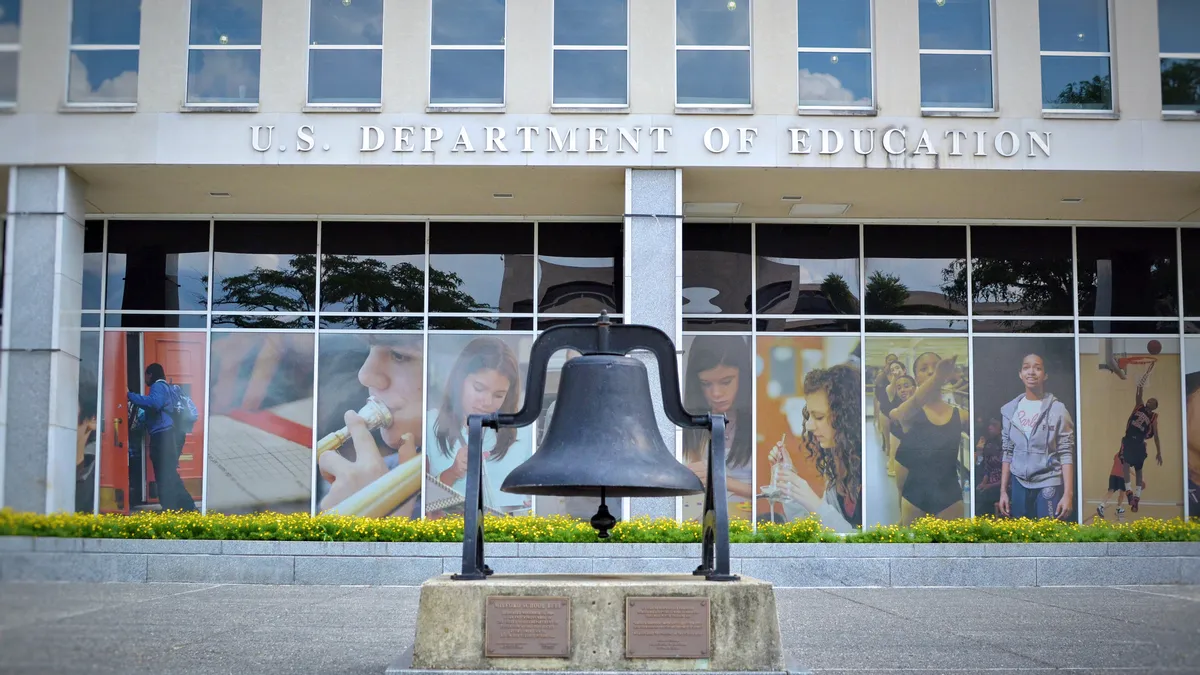Dive Brief:
- Colleges do not have to give ongoing updates about the coronavirus pandemic or proactively track down cases within their campus community to comply with the Clery Act, the U.S. Department of Education said in guidance issued last week.
- To satisfy the Clery Act, institutions should notify students and employees about COVID-19, the respiratory illness the virus causes, through their alert systems. They should also direct them to information from healthcare providers, state health authorities and the Centers for Disease Control and Prevention.
- The department included the new guidance in a larger update about the regulatory flexibilities colleges will have as they finish the academic year remotely.
Dive Insight:
While the coronavirus pandemic has upset operations, colleges should be mindful that they still must comply with the Clery Act. The consumer protection law requires colleges to disclose information about crime and emergencies occurring on or near campus.
In particular, institutions must alert the campus community when there is an "immediate threat" to health or safety, including outbreaks of dangerous illnesses, earthquakes, gas leaks and terrorist incidents. So far, many colleges have been notifying their communities when students or employees test positive for COVID-19.
"Most institutions that I'm aware of were responding in some way, even if it wasn't through formal Clery channels," said S. Daniel Carter, president of Safety Advisors for Educational Campuses, in an interview with Education Dive. "Optimally, that would be formalized going forward."
Colleges that haven't had confirmed cases on their campuses or in their communities should still connect students with information about the pandemic, he added.
Institutions can face big fines when they violate the Clery Act, though most major penalties have been for failures to address sexual assault and other crimes. The Ed Department levied a $4.5 million fine against Michigan State University last year for its "systemic failure" to address reports brought against Larry Nassar, a former sports doctor who sexually assaulted hundreds of his patients.
Still, a fine isn't the only consideration for colleges that botch their response to the threat of disease on campus.
Last year, the University of Maryland came under fire for waiting nearly three weeks to alert the campus community about an adenovirus outbreak in 2018 that killed one student.
An independent investigation found the U of Maryland followed state and federal protocols but noted it should have elevated the issue to a campuswide emergency. The report recommended the university better monitor flu-like illnesses on campus and coordinate its response to outbreaks.
Some institutions have faced criticism for how they are handling the coronavirus pandemic. Liberty University bucked recommendations from health officials and invited students to move back into their residence halls after spring break. At least one student has since tested positive for COVID-19, and a dozen others have shown symptoms.














